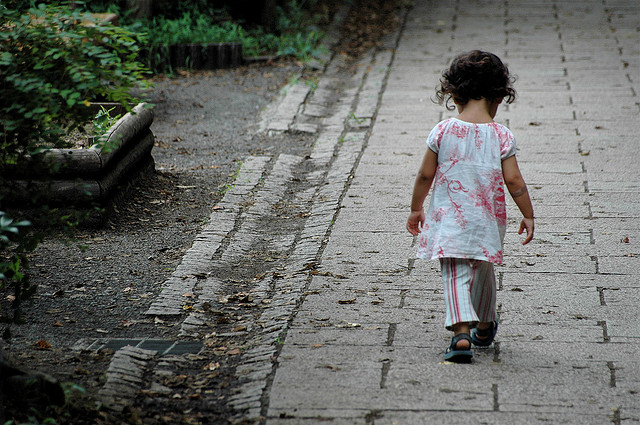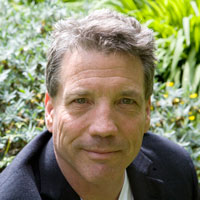St. Paul in 1 Corinthians 13:11 stated, “when I was a child, I spoke like a child, thought like a child, and reasoned like a child; but when I became a man, I put away childish things.”
Most people simply read that as a call for maturity and to grow up. It is debatable whether putting away toys and things that make us belly laugh and exemplify unbridled fun so we can follow a more traditional path less distracted is mandatory.
However, there is much more to it than that.
Behavioral psychologists believe that we develop our personalities, adopt beliefs, behaviors and embed subconscious thought patterns by the time we are seven years old and these will not change for most people throughout their lifetime. Our primary caregivers play a large part in shaping our personality. This is especially true for traumas that we suffer during these early years.
I was disciplined repeatedly during my early years, not necessarily undeservingly so, for I was a willful child. The problem didn’t lay with the necessity of guidance and discipline but the methodology. Physical discipline, for extremely sensitive children, such as myself, can be perceived as highly traumatic.
For me, these early childhood traumatic events shaped my perception and personality until I realized and decided to do something about it.
We make a great deal out of bullying these days, but what if the person that is doing the bullying is your parents? Yelling, pushing, cursing to motivate a young child to “behave” is nothing short of bullying. Some might say it was a generational thing or for others a cultural thing and dismiss it as a sign of the times. Regardless, this type of behavior by parents can have just as destructive effect as the usual school yard bully. There is only one way to deal with these childhood events that shape our future, and that is to let them go or as Paul writes, “put away childish things.”
There are a number of characteristics that I developed as a result of being physically disciplined by my parents. These are characteristics that I have struggled with all of my life. These include abandonment and betrayal issues, trust issues of others and my own judgement, self-esteem issues and Post Traumatic Stress Disorder. I can trace all of these issues that I have struggled with to interactions with my parents in my pre-school years. I know what your thinking, “Just get over it. You can’t blame your adult behavior on your parents forever.”
I couldn’t agree more.
So what did I do to heal and let these childish things go?
First, I had to detach from the issue at hand. I had horrible panic attacks which came out of nowhere and left me physically sick. These panic attacks arose anytime I felt like I was being abandoned or betrayed, whether it was the truth or not. I also felt these panic attacks anytime someone yelled at me. The interpretation of yelling can also vary from person to person. My fiancé is Italian and sensitive, yet she perceives yelling in quite a different way than I.
When I became aware that these panic attacks were sourced by ancient memories of when my parents yelled at me, I was able to detach from the memory. To detach from my memory was not easy. It took and continues to take me staying clear that “that was then, this is now. To remind myself that “This is not real” to bring me back into the present moment, using meditation and breathing exercises to help get oxygen to my brain to overcome the fight or flight response.
The same response that I experienced whenever I felt abandoned, betrayed or abused.
Second, I sought healing for my Post-Traumatic Stress Disorder. There are many modalities which are being used to help PTSD victims that do not include medication. EMDR, EFT, the Havening Technique and other alternative medicine techniques actually help “rewire” your brain to help avoid the panic and terror which certain events can trigger.
Research is showing that moving your eyes back and forth while repeating key words can help restructure your thinking patterns.
I highly recommend them.
Third, I had to become pro-active. Many times victims of childhood trauma experience procrastination and indecision. I had to make a decision to take action. Any action is better than sitting there like a mouse shivering in the corner. Any small step will start the process; Go for a walk, talk to a friend, make action plans and share them with someone who understands you. Each one of theses steps may seem insignificant but will support you in brining yourself back to the place of ground zero where clarity reside. Each will help indecision and procrastination being dispelled a great deal.
Fourth, I had to start believing that I deserved the best life I could create. That that was my sole responsibility regardless of my upbringing.
Many times we get trained that our parents know better than us about how we should live our life. As a result, we disempower ourselves to our parents and other figures of authority and chase our parent’s dream for our lives rather than our own. I did that, my parents wanted me to be a lawyer. I did not. I lived the life they wanted me to live for 50 years before I finally said to myself “whose life is this anyway?” and quit.
Now I am a teacher, healer and writer. These are my true passions.
We have to be strong enough to say we deserve the life we want for ourselves, not the life someone else wants us to have.
When we understand that what happened to us in our childhood does not have to define us, we have the freedom to become what we will. The greatest gift we give ourselves is permission to be who we want, especially if our parents micromanaged our lives and we constantly conflicted with their plan. We need to actually practice amnesia (yes, amnesia) by imagining what we could do and be if we couldn’t remember any of the bad stuff that happened to us.
Finally, we also have to remember that our memories are subjective and may not be accurate. We may be remembering something that happened a different way than what we experienced at the time.
We do not have to be trapped by our past. We have a choice. It will take conscious effort to cause the breakthrough but it is entirely possible to live the life you want!
Author: James Robinson
Editor: Renée Picard
Image: Lance Shields/Flickr









Read 0 comments and reply